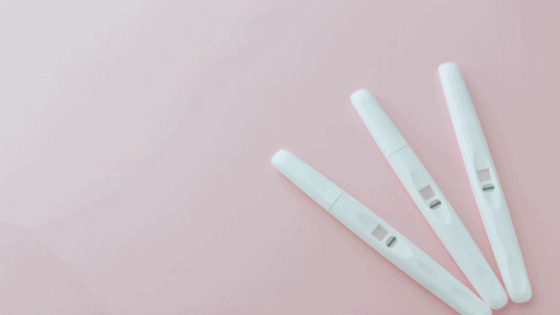
21 Feb Episode 52 – Infertility w/ Dr Melanie Hudson
We are talking with Dr. Melanie Hudson this week about infertility – why it can happen, what you can do, and what tests you can ask your doctor about to get to the root of the problem! Also, we’ve rebranded to Nuvitru Wellness!
Address your infertility and OPTIMIZING YOUR FERTILITY with Dr. Hudson.
“Firstly start checking for ovulation and fertile signs at home.
Checking basal body temperature – click HERE for a downloadable copy
On waking check your temperature with a thermometer and writing it down. Usually the first half (follicular phase) of a women’s cycle temperature will be around 97oF, once ovulation occurs, and progesertone is the dominant hormone – it’s more thermogenic in nature and we will see a small increase in body temperature that remains elevated for approximately 10 days After ovulation before progesterone starts to drop in preparation for menses or conception has occurred in which case temperature stays elevated and climbs.
-
Just note: this tool is not used to predict ovulation for the couple and their intercourse timing but rather confirms ovulation occurred retrospectively. When combined with monitoring cervical mucus observations – it can be very informative and valuable tool for couples to use.
-
Monitoring cervical mucus changes
-
Daily monitoring of the texture, quality and quantity of cervical mucus secretions can be useful to predict ovulation. Cervical mucus secretions change throughout the cycle under the influence of estrogen and progesterone.
-
Approximately 2 or 3 days before ovulation occurs, the estrogen levels peak and the nature of the mucus change from a pasty thick or milky consistency to a distinctive stretchy mucus (usually 6-10cm) of wet consistency and opaque colour. It resembles similar texture and nature to raw egg white.
-
At this stage of the cycle, the mucus is an optimal reservoir to nourish sperm and encourage their survival for conception.
-
When a woman is monitoring her cervical mucus changes, it is recommended that she feel the texture of the mucus (at the vaginal opening) between the forefinger and thumb and not use toilet paper to collect the sample (as it absorbs moisture and may lead to misinterpretation of the mucus viscosity). When estrogen levels are lower in the early follicular phase and midluteal phase of the cycle, the mucus secretions are thin, milky and sparse in nature. We’ll talk much more about this in our clinic consultations.
-
Ovulation test kits
-
Home test kits that measure urinary LH levels are available for ovulation preduction. These are single use tests and their disadvantage is the expense when used regularly.
-
Work with a Naturopathic Doctor
-
Couples are encouraged to participate in a 3-4 month period of preconception care, in which their overall health can be improved with the use of herbs, nutrition, dietary and lifestyle modifications.
-
Acupuncture treatments
-
Together with herbs, acupuncture can be very effective in helping a woman conceive. It will help work on your body’s hormonal system as well as address imbalances of other kinds that are affecting your fertility.
-
I love this quote referring to optimizing fertility with traditional Chinese medicine
-
“Restoring optimal health permits the expression of our natural fertile state. Our job is simply to be ready for the occasion when the universe says, ‘It’s time.’”
– R Lewis
-
Using Botanical Medicine
-
Botanical treatment of infertility cannot address overt physical impediments to fertility; however, it can provide treatment and support for numerous fertility-related problems; such as hormonal dysregulation, thyroid and adrenal disorders, genitourinary infections, immune dysregulation, and stress-related problems mentioned above, and would be thoroughly assessed by your ND.
-
Some favourite herbs to use for fertility optimizing include:
-
Angelica sinensis (Tang kuei), Caulophyllum thalictroides (Blue cohosh), Viburnum opulus (Crampbark), Chamalerium luteum (False unicorn), Mitchella repens (Squaw vine), Rubus idaeus (Red raspberry), Trifolium pratense (Red clover), Urtica dioica (Nettle), and Vitex agnus casti (Chaste tree berry). Your ND or herbalist will understand how and when to use each herb based on your unique health and fertility challenge.
-
Optimizing Nutrition
-
Address nutritional deficiencies that can impact fertility; such as folic acid, zinc, iron, vitamin B6 and iodine. Make sure your diet if nourishing your body and not hindering your fertility success.
-
Restore Balance
-
We’ll talk sleep, stress, and environmental exposures; working to increase your hormonal health through lifestyle modifications that affect your balance.
-
Give it time
-
Herbal therapies should be used for a minimum commitment of 3-4 months to improve the fertility of a couple prior to conception
-
If conception has not resulted after 12 months of naturopathic therapy, then other medical options may be considered.”
Download your Basal Body Temperate Chart!
More information on today’s episode with Dr. Hudson…. and infertility
Want to connect with her? Find her on Instagram + Facebook + her website!
Find Nuvitru Wellness on Facebook + Instagram + our website!
Check out our sponsor, Silver Fern, on this podcast episode!


